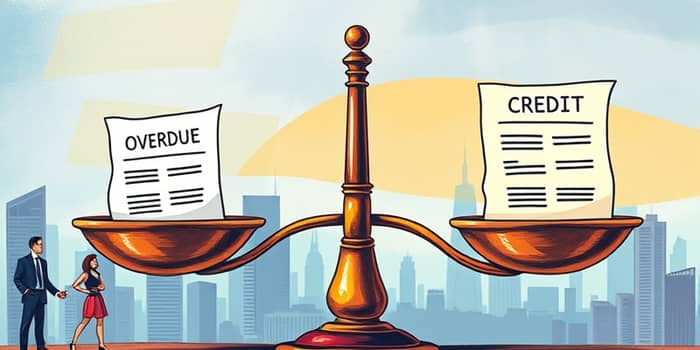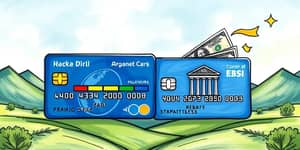Managing debt can feel overwhelming, especially when creditors declare a charge-off. Understanding this term and its implications is crucial to rebuilding your financial health.
Definition of a Charge-Off
A charge-off occurs when a lender writes an account off as a loss, concluding the borrower is unlikely to repay. This accounting action closes the account to future charges and flags it as a derogatory mark in the creditor’s records.
Despite the term, a charge-off does not erase your debt. It simply signals that the creditor considers the balance unrecoverable through normal billing processes.
Circumstances Leading to a Charge-Off
Charge-offs generally follow prolonged nonpayment. Creditors view this as a last resort after they receive no payment for a specific period, typically six months.
- Most charge-offs occur after 180 days of missed payments.
- Can involve credit cards, personal loans, auto loans, or student loans.
- Making payments below the required minimum may still lead to a charge-off.
Even partial payments below the minimum can trigger arrears, pushing accounts toward charge-off status.
Reporting and Duration on Your Credit Report
Once an account is charged off, creditors report it to the three major credit bureaus. The entry remains on your credit report for up to seven years from the date of your first missed payment.
Alongside the primary charge-off, additional entries for missed payments and subsequent collection efforts may also appear, further damaging your credit profile.
What Happens After a Charge-Off
Creditors may pursue collection themselves or sell the debt to third-party agencies. The account status may update to “charge-off paid” or “charge-off settled” if you later pay or negotiate a settlement.
Even after sale, you remain legally responsible for the debt. Collections agencies often charge extra fees and can be more aggressive in their contact attempts.
Effects on Credit Score
Charge-offs are considered major derogatory events and can substantially lower your credit score—often by dozens or even over a hundred points, depending on your overall credit history.
- The missed payments and the charge-off both damage your score.
- If the debt enters collections, that adds another negative mark.
- Impact lasts until the charge-off ages off your report after seven years.
As long as the charge-off remains, lenders view you as high-risk. Approval for new credit becomes challenging, with high interest rates or secured credit cards being the few options.
Statistics and Research Data
Research shows that removal of a charge-off flag can raise a credit score by up to 15 points within a year and boost credit limits and balances by around 10 percent.
Additional Consequences Beyond Credit Score
Charge-offs create long-term roadblocks to credit. Lenders, landlords, and even employers may review your credit and see you as unreliable. Insurance premiums can rise, and obtaining favorable loan terms becomes tougher.
Some organizations perform credit checks for employment or rental applications. A record of charge-offs can undermine your prospects even if you’re in the process of rebuilding your finances.
Should You Pay a Charge-Off?
Paying a charged-off debt won’t remove the entry from your credit report, but it updates the status to “paid charge-off” or “settled charge-off,” signaling you’ve taken responsibility.
While the derogatory mark stays for seven years, a paid charge-off may be viewed slightly more favorably by future lenders than an unpaid one.
Potential for Removal or Dispute
In rare cases, creditors may agree to remove a charge-off entry after full payment, especially under extenuating circumstances like job loss or medical hardship. You’ll need to:
- Write a formal hardship letter with supporting documentation.
- Negotiate a pay-for-delete agreement in writing.
- Follow up to ensure the agreement is honored and reflected on your credit reports.
If you spot an error—say, the debt isn’t yours or the timing is incorrect—you can dispute with credit bureaus. Provide evidence like account statements or proof of identity theft to back your claim.
Strategies for Credit Recovery
Recovering from a charge-off takes time, but it’s achievable through consistent, responsible credit behavior.
Start by:
- Paying all current accounts on time without exception.
- Keeping balances low relative to credit limits.
- Monitoring your credit report regularly for errors.
Gradually adding positive entries—like secured cards or small installment loans—can help offset the derogatory impact of past charge-offs.
Key Takeaways and Practical Tips
Act quickly if you face potential delinquency. Communicate with creditors about hardship options—many may offer payment plans or reduced rates.
After a charge-off:
- Consider paying or settling to stop further collection tactics.
- Keep documentation of all communications and agreements.
- Monitor your credit report to confirm status updates.
Be patient. Responsible habits and strategic planning lead to gradual credit improvement. Over time, the charge-off’s impact diminishes as the entry ages off your report.
Remember, a charge-off is not the end of your financial journey—it’s a setback you can overcome with informed actions and persistence.
References
- https://www.equifax.com/personal/education/credit/report/articles/-/learn/charge-offs-faq/
- https://www.experian.com/blogs/ask-experian/what-is-a-charge-off/
- https://www.investopedia.com/terms/c/chargeoff.asp
- https://www.elderjusticeny.org/blog/chargeoffs
- https://www.creditkarma.com/advice/i/what-is-a-charge-off
- https://www.takechargeamerica.org/what-is-a-charge-off-how-does-it-affect-credit/
- https://www.transunion.com/blog/credit-advice/what-is-a-charge-off










